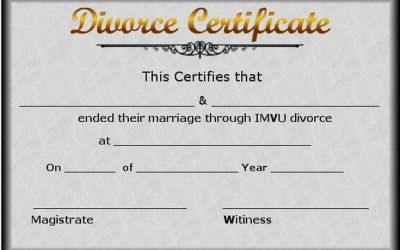Can a Muslim Marry a Non-Muslim? A Complete Guide to Islamic Marriage Rules in 2025
Table of Contents ▼
Marriage is a beautiful and important event in life, particularly for Muslims, who see it as spiritually meaningful.
However, when love crosses religious boundaries, challenges can arise, especially when Sharia law is involved. A common question is: can a Muslim marry a non-Muslim?
Let’s examine this topic thoroughly, drawing from authentic Islamic and governmental sources for guidance.
Marriage and Sharia Law
In Islam, marriage is regarded as a sacred bond founded on love, mercy, and faith. Sharia law, which provides guidance for Muslims, outlines specific conditions for marriage.
A successful marriage in Islam requires compatibility in faith, as religion is central to family life, decision-making, and raising children. According to the UAE government portal, Sharia law dictates that both spouses must have similar religious values.
This brings us to the question: can a Muslim marry a non-Muslim? The answer depends on the gender of the Muslim, as the rules differ for Muslim men and women under Sharia law
Can a Muslim Man Marry a Non-Muslim Woman?
In Islam, a Muslim man is permitted to marry a non-Muslim woman, but only under specific conditions.
According to the Quran and Islamic scholars, this is allowed with women from the “People of the Book”—Jewish and Christian women who are sincerely committed to their faith. A Muslim man may marry a Christian or Jewish woman who is known for her chastity and faithfulness.
Nevertheless, there are significant conditions to consider. The woman must be a genuine follower of her religion; she cannot be an atheist or someone who practices no religion.
She must also live a modest, chaste lifestyle. Additionally, the marriage should not compromise the Muslim man’s religious obligations or the Islamic upbringing of their children.
While interfaith marriages are allowed in many Muslim countries, including the UAE, practical issues such as family pressures, religious holidays, and children’s education often lead authorities to encourage marriage within the faith.
Can a Muslim Woman Marry a Non-Muslim Man?
In Islam, a Muslim woman cannot marry a non-Muslim man, even if he is from the “People of the Book” (Jews or Christians). While Muslim men are allowed to marry non-Muslim women, this exception does not extend to women, as clearly outlined in the Quran and interpreted by Islamic scholars.
The reason for this prohibition is tied to the traditional roles within marriage, where the husband is seen as the head of the household. Islam seeks to protect a Muslim woman’s faith and ensures that her religious practices are respected within the home.
The concern is that a non-Muslim husband may not support his wife’s commitment to Islam, potentially influencing her or their children to stray from the faith.
This rule serves to preserve the Muslim woman’s religious identity and ensure that the family follows Islamic principles in raising their children.
Interfaith Marriage in Today’s World
We live in a world that is more interconnected than ever before, with people from various religious and cultural backgrounds coming together.
As a result, interfaith marriages have become more common, prompting many countries to create new laws or reinterpret existing ones to reflect these changes. But the question persists: Can a Muslim marry a non-Muslim?
Muslim-majority countries have different legal frameworks when it comes to interfaith marriages. For instance, the UAE allows non-Muslim marriages under civil law, but requires Muslim marriages to adhere to Sharia law. This balance allows both civil marriages and religious customs to coexist.
However, in Saudi Arabia, Islamic law is strictly enforced for all marriages, including those involving non-Muslims. These examples highlight that while modern society has evolved, Sharia principles regarding marriage remain largely unchanged in many regions.
Conversion as a Solution?
In some cases, when a non-Muslim partner decides to convert to Islam, it can eliminate the barriers to marriage.
However, conversion should always be genuine, based on a true belief in Islam, not just a desire to marry someone. Islam places a high value on sincerity, and converting for the wrong reasons can lead to a lack of true connection with the faith.
Many scholars suggest that couples take time to properly understand and reflect on Islam before making the decision to convert.
Conversion should come from a place of deep conviction and faith. This process ensures that the decision to embrace Islam is authentic, leading to a more fulfilling marriage and a strong spiritual foundation for the couple’s future together.
Ready to Start Your Journey Together?
Sharia law provides valuable guidance that protects faith, family, and future generations, with the intention to simplify life, not complicate it.
If you’re considering an interfaith marriage, it’s important to consult knowledgeable scholars who can help you understand the religious and legal requirements involved.
At Easy Wedding, we make your Islamic marriage simple, beautiful, and stress-free, no matter where you are on your faith journey.
Whether you’re planning a traditional Nikah or navigating the unique challenges of an interfaith marriage, our team is here to guide and support you at every step.
Visit Easy Wedding today and take the first step toward your happily ever after!



